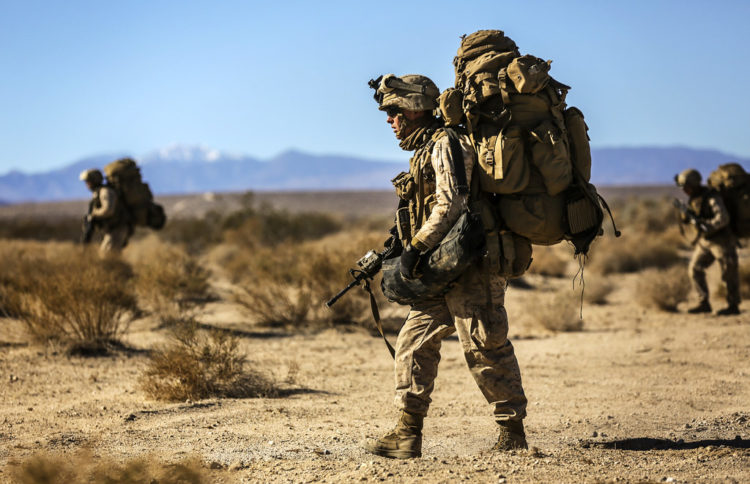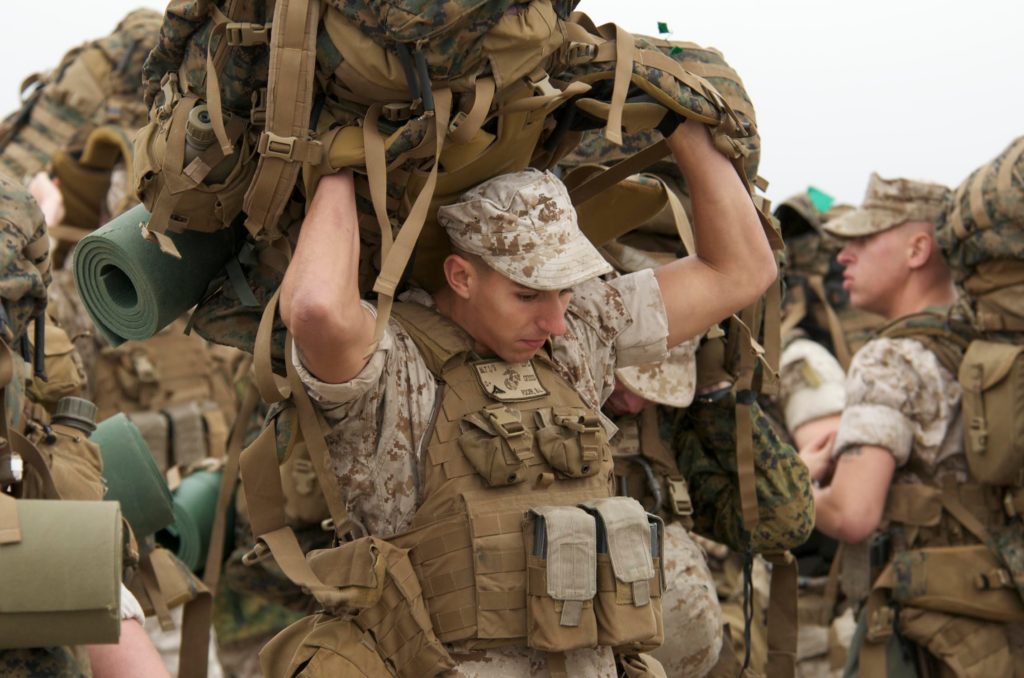New study shows just 15 pounds of extra gear can hinder a Marine’s ability to fight
AI Overview
Summary is AI-generated, newsroom-reviewed.
Research by Marine Corps Capt. Courtney Thompson reveals that combat effectiveness significantly declines when Marines carry more than 15 pounds beyond the standard 43-pound load. Despite these findings, current mission requirements mean that many Marines still carry loads exceeding 150 pounds, which has drawn criticism.
Key points from this article:
- The baseline combat load for Marines is 43 pounds, with effectiveness declining after adding just 15 pounds, according to Capt. Courtney Thompson's research.
- How the excessive weight of gear, often exceeding 150 pounds, impacts Marines' combat effectiveness and physical performance during missions.
- Why Thompson's research is crucial as it may influence future gear design and weight management in the Marine Corps, despite current heavy load requirements.

It’s the mental debate every war-fighter has before departing on a mission, every hiker has before stepping off on a journey, and every camper has as they pack their bags: how much can I carry and still be as effective as I need to be? At what point is the extra weight of our gear […]

What readers are saying
Generating a quick summary of the conversation...
This summary is AI-generated. AI can make mistakes and this summary is not a replacement for reading the comments.










COMMENTS